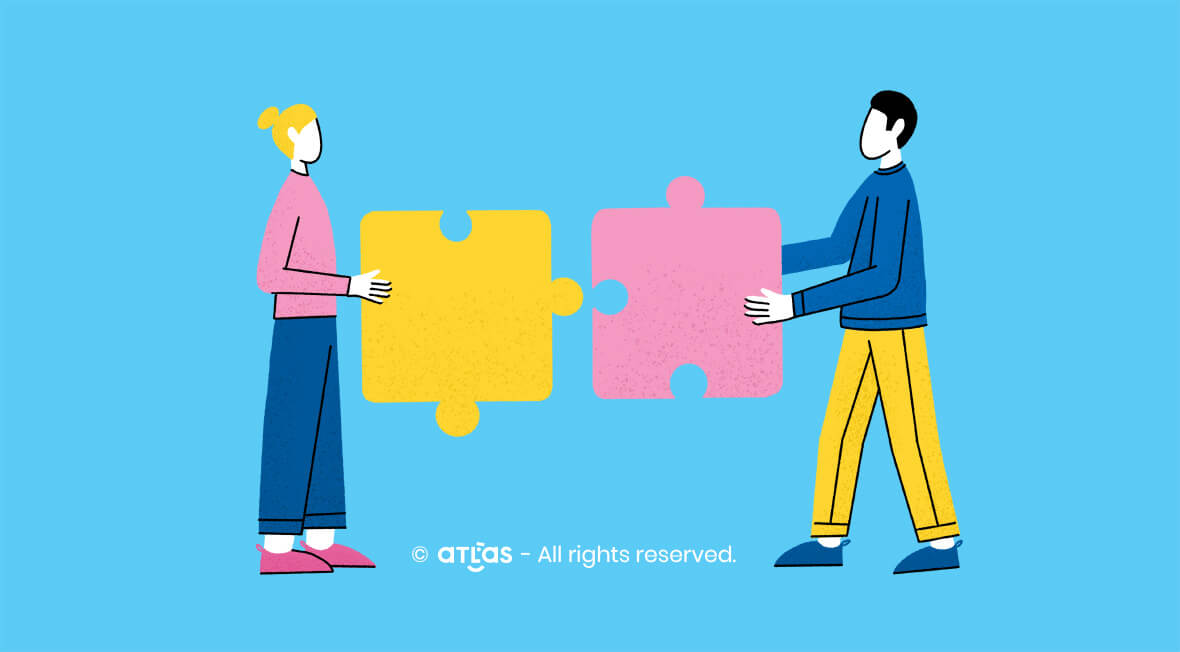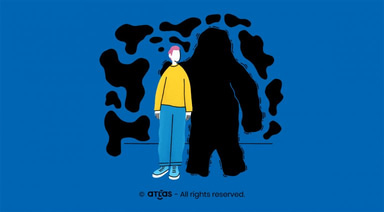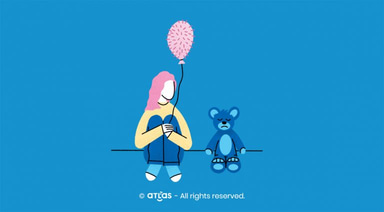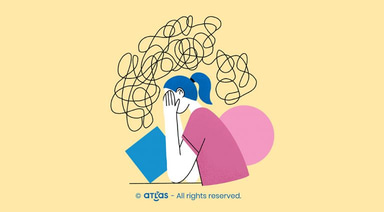If we go rely on the Romanian expression “Bad with evil, but worse without evil,” we have only the “great chance” to harm ourselves, but also, our partner. We are trapped in a circle from which you can only jump:). THIS BECAUSE, the exit from toxic relationships is always blocked on departure, with questions like: “What’s with that dress on you?”, “You have to adjust your haircut! Can’t you see it doesn’t look good on you?”, “Why are you doing makeup?” “Why do you have to see your friends tonight? I thought you were going to stay at home.”
Toxicity can occur in relationships of any kind – from those in the work environment to the relationship with one’s person. About the toxicity that shakes and the most durable bond, that of couple relationships, speaks to us in the interview of June ATLAS Specialist in family and couple systemic therapy, Liviu Elefterie:
We talk about toxicity, in all its forms, from food to social or working relationships. What about toxicity in couple relationships?
The vast majority of people enter into a toxic relationship to repeat specific patterns from their unpleasant but familiar past. Of course, this is an unconscious process.
Toxic relationships never start as abusive relationships, but begin as very heated relationships, full of passion, affection and strong emotions in which both people feel good, perhaps even lucky to have met the chosen one.
In a toxic relationship, these feelings change slightly, from the desire to suffocation, from play to abuse.
There is a toxic relationship when a person fails to recognize the destructive dynamics they subconsciously seek to play with a partner. Not only leads to an imbalance of the relationship but often limits the personal growth of the individual.
We need to understand that there’s no need for violence in a couple to call them a toxic couple, and abuse comes in many forms.
In toxic relationships, there will be an unhealthy dynamic that will not disappear. Any healthy relationship needs work, and if both partners make efforts, changes will occur. They will be aware of what is wrong and discover ways to fix it. And they will do so in a gentle way, with understanding and patience.
What are the usual signs of a toxic relationship?
There are a lot of signs that we can identify in a toxic relationship, but I’m going to point out some of them.
A first sign would be when one partner attacks self-esteem by offering suggestions without the other asking them, tips for what to improve, does not support interests or hobbies and fundamentally criticizes aspects about who should be the partner.
“What’s with that dress on?” “You gotta get a cut! Can’t you see it doesn’t look good on you?”, “Why are you doing makeup?” “Why do you have to see your friends tonight? I thought you were going to stay at home.”
These are the comments that take down your self-esteem.
Another vital sign is the apparent imbalance of power between the two partners. Try to ask yourself who has more power in this relationship if there’s a clear answer, that suggests a problem.
Ideally, relationships are united between two equal partners. Indeed, every aspect of a bond will not have a perfectly balanced power dynamic, but in general, it should balance.
When we get to feel that we are not good enough for the partner and when we see that none of them want to work on this and solve the problems, we have to ask ourselves a big question mark.
Isolation is one of the most ignored signs in toxic relationships. At the beginning of any relationship, the partners want to spend a lot of time together. It makes us not feel the danger when your partner has lines like, “Your parents don’t want us to be together,” “Your friends are obnoxious, stupid, etc.”
It attacks the independence of the person and removes it from anyone who could support him.
Always walk on eggshells, because you don’t know when your partner’s next insecurity will appear in the form of an accusation. Part of a healthy relationship is the ability to be honest, and make mistakes without fear of being judged. It happens, however, that one of the partners explodes and exaggerates about small things.
Can we identify these signs before it’s too late?
If you always try to rationalize your partner’s actions, whether we’re talking about their emotional unavailability, lack of empathy, the habit of being helpless to friends, or lack of support, this is a problem.
Everyone has stressful periods and things to work on, but if your partner doesn’t listen to your worries or doesn’t try to improve, maybe you need to be ready to get out of the relationship. It is impossible to solve problems if the partner is not willing to acknowledge his share of his contribution to this situation.
Where is the “emotional limit” between a problematic relationship and a toxic relationship itself?
In healthy relationships, every time a problem occurs, both partners will be willing to figure out a solution and make a change. With toxic relationships, however, that rarely happens.
Sometimes it takes time for a couple to learn how to communicate, solve their problems, and create a healthy foundation for their relationship. However, there will be some slow progress if I go in this direction.
It’s very different from toxic relationships, where things are bad and stay that way. This toxic behavior is a pattern or just an isolated incident.
In longlasting relationships, emotional attachment makes “good home” with toxic relationships and complacency in them. How do we get out of toxic relationships?
Talk to your partner about what’s bothering you. If he is willing – to see a therapist, but even if you get the necessary help and the situation does not change, and the pattern reappears, you should consider ending the relationship.
Even if most of the time, the idea of not talking about this relationship with your family arises because you are ashamed, you can try to talk to certain trusted family members or friends about your situation, including that you intend to leave. You may need a place to stay when you end the relationship, and people on your social network could help secure that stepstone. At the very least, I can provide social and emotional support.
Work on your self-esteem. It is very important to start having activities that you value, including exercise and time with your loved ones. These activities will boost your self-esteem.
You can also spend time with animals, as it provides a good model of unconditional love, helps improve loneliness, and can also take you out in nature to interact with others.
Choose a few hobbies you’ve enjoyed or always wanted to try. Hobbies not only boost self-esteem but also provide a good place to meet new partners when the time is right.
The general recommendation of the specialist
I recommend that you seek a specialist. It can help you figure out if you’ve chosen someone unwanted for reasons negative from the past, or if you’re removing someone you care about, because of your fears or your desire for defense.
If you identify the negative traits that attracted your partner, you can consciously choose to look for someone different.
If instead, you realize that the person you have chosen has many of the positive qualities you want, you can look for ways to act in the relationship and follow when they appear. The goal is to be able to cause them to appear more often. Once you understand them, you can follow the paths that lead your relationship to unravel. You can take power and establish a healthier, more honest, and rewarding relationship.
Some toxic relationships, unfortunately, can not be saved, but others do. We can try to fight, but this fight has to be fought in the team and with the same intensity.
Understanding the situation is the first step, and transforming from a toxic relationship into a healthy relationship must be done through intense work. We need to have the best communication, but equally important are mutual respect, kindness, and patience.
We don’t have Berzelius graduated glasses for toxicity, but we do have ATLAS and the right specialist to help you if the couple shows signs of changing their emotional color. You can contact us anytime; we’re here!



